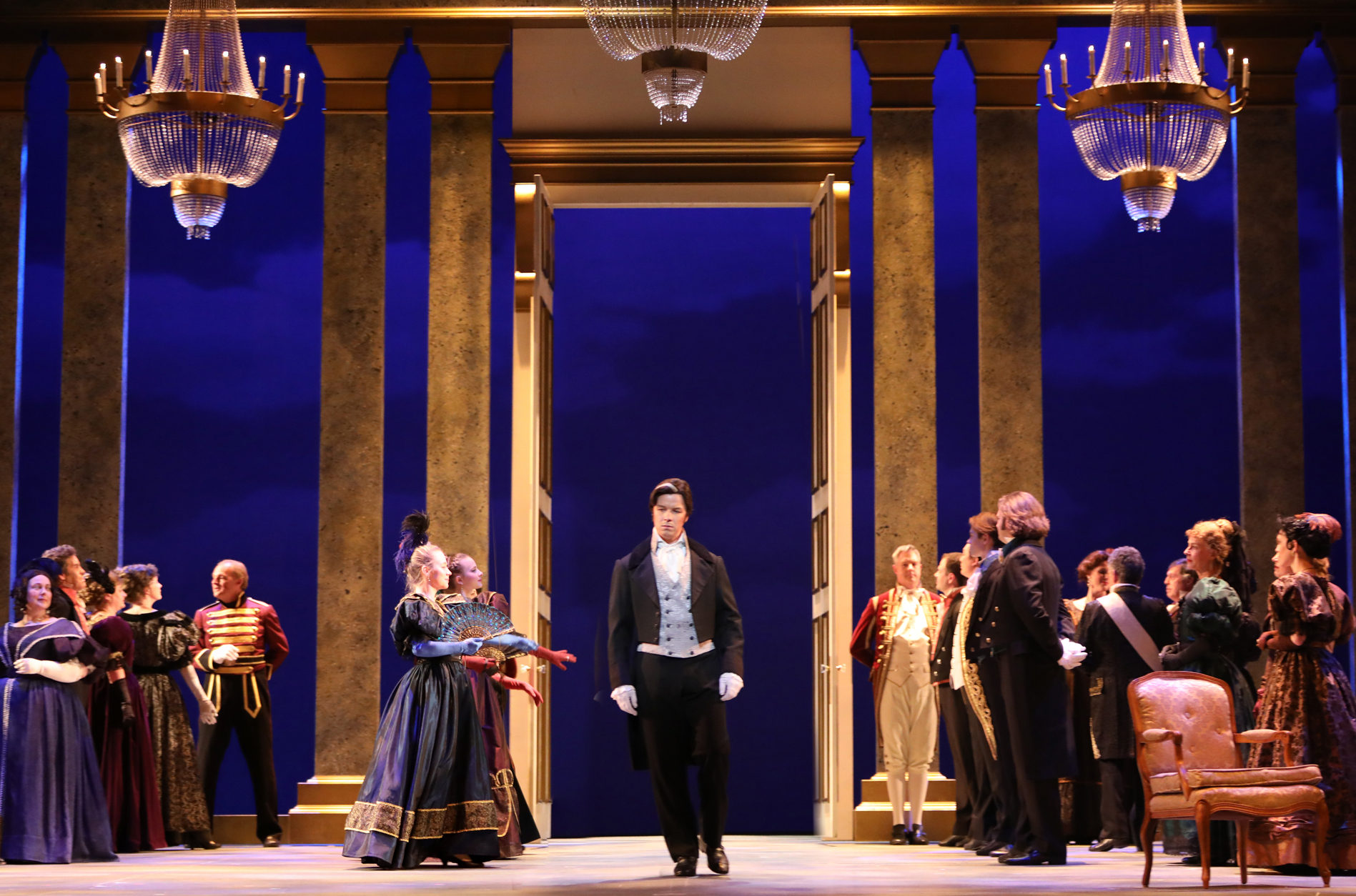
This year’s Vancouver Opera Festival has a Russian White Nights theme, paying homage to the solstice festival held in St Petersburg every year. There’s plenty going on, but the two headliners are pieces that interpret important works of Russian literature. One is a traditional interpretation of Pushkin’s “Eugene Onegin” (pronounced On-Yay-Gan), the other a contemporary imagining of Gogol’s “Overcoat”.
This particular classic piece is Tchaikovsky’s sublime orchestration of Pushkin’s ill-fated Onegin. A bit of a coup of its day, marking a departure from the usual grandiose fantasy themed opera, to one laced with real psychological nuance. For those who don’t know, the story goes….
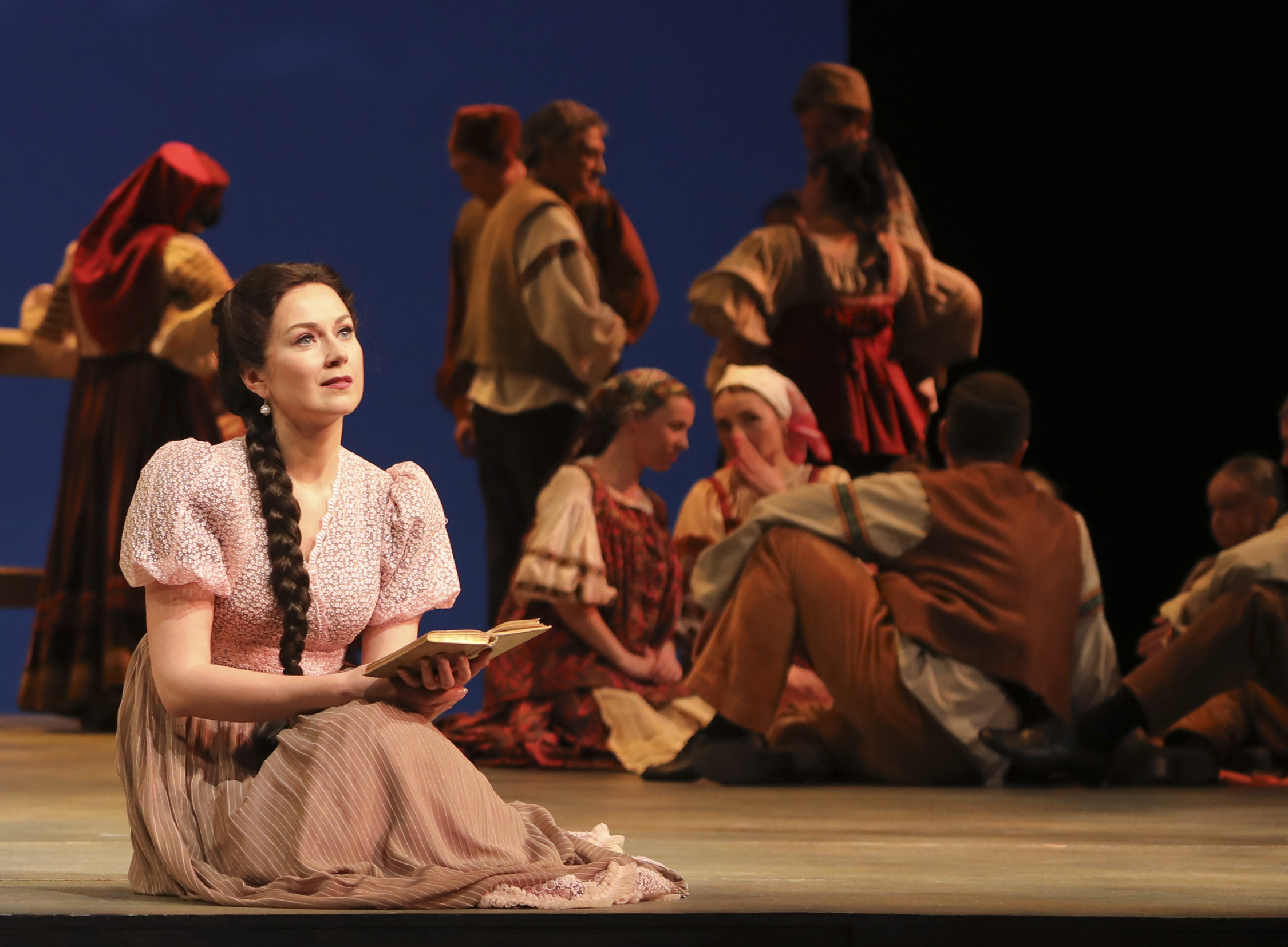
Once the charismatic dandy of St Petersburg’s high society, Eugene Onegin increasingly becomes bored and disenfranchised with the banality of such a charmed existence. As a reprieve from vapid society, he moves to the countryside after inheriting his wealthy uncle’s estate. There he meets the vivacious poet Vladimir Lensky who in turn introduces Onegin to his fiancée Olga and crucially to her sister Tatyana. Tatyana, falls head over heels in love with Onegin and in a fit of passion writes him a heartfelt, yet unsophisticated love letter. However, Onegin still nursing his ennui, rejects her declaration and in a haughty speech tells her that she must grow up and learn the way of the world. He later comes to regret this conceited lament, when events lead him back to Tatyana years later and he realises he is madly in love with her. She has become the majestic, yet aloof wife of Prince Gremin – a celebrated war hero.
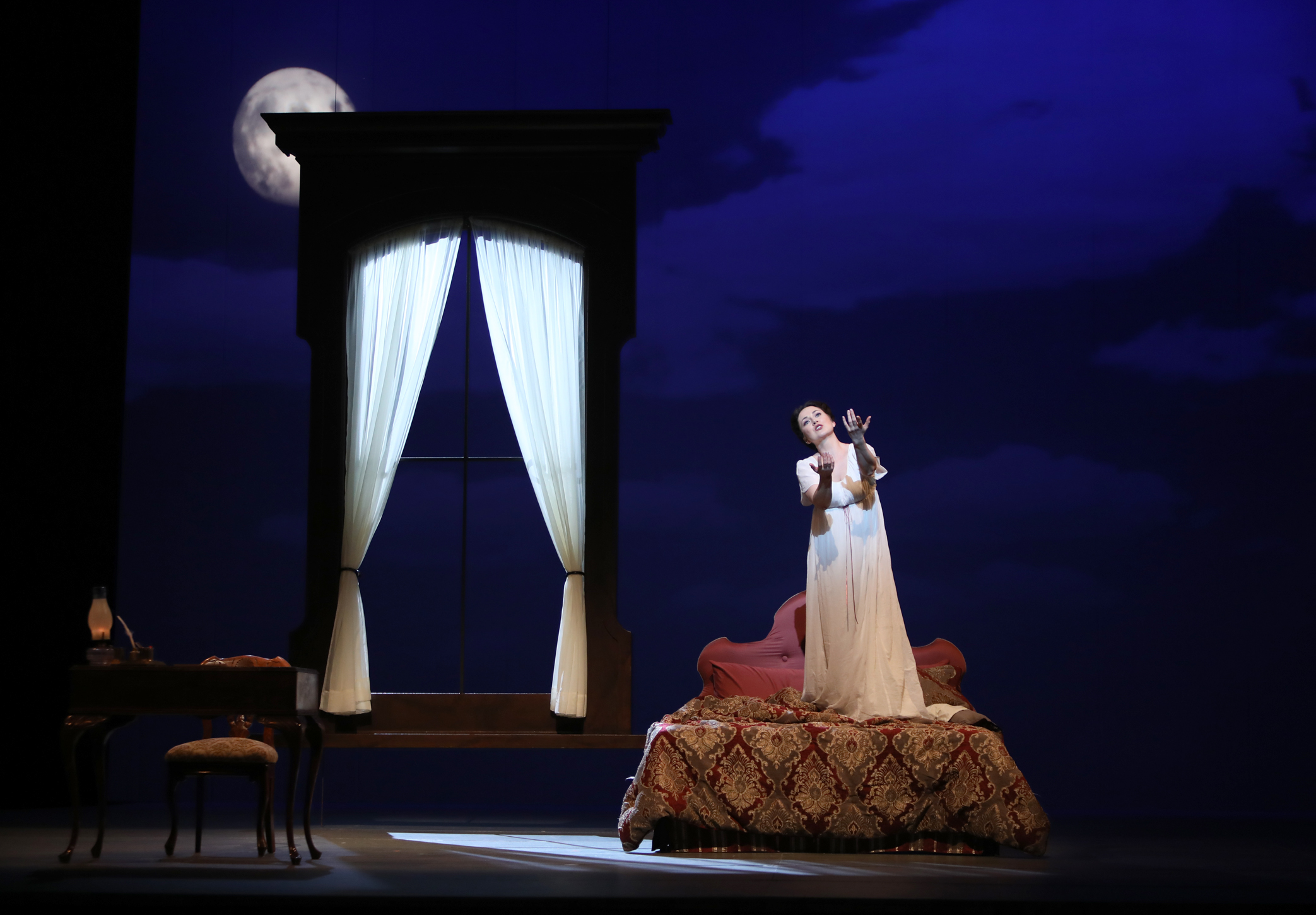
In the intervening years, Onegin has also changed, haunted by the death of his friend Lensky (at Onegin’s own hand in a duel for the honour of Olga). He has travelled the world in search of meaning, but finds only mounting depression. On seeing Tatyana again he is rabid with desire but this time it is Tatyana’s turn to reject him. She acknowledges that she is still in love with him but is now committed to her matrimonial duty. At curtain close, Onegin is distraught. He now comprehends that in the countryside all those years ago, he was so consumed by the excesses of opulent living and intellectual arrogance that he couldn’t embrace the one thing that would bring him happiness- another’s love. Cue dramatic heart-wrenched arias.
“Eugene Onegin” is a classic and this rendition did it justice. It was slick and meticulously executed. The staging and costumes are expertly honed to evoke 19th century opulence. A nice flourish is the projection of a pensive Onegin (as if shot with camera technology of the age) on to the stage’s drop-down screen, to mark the start of each scene. This sets the mood and cunningly entertains the audience while the stage crew change the set beyond. Tchaikovsky’s music, as always, was utterly engrossing and to hear it performed by a live Orchestra was a real treat.
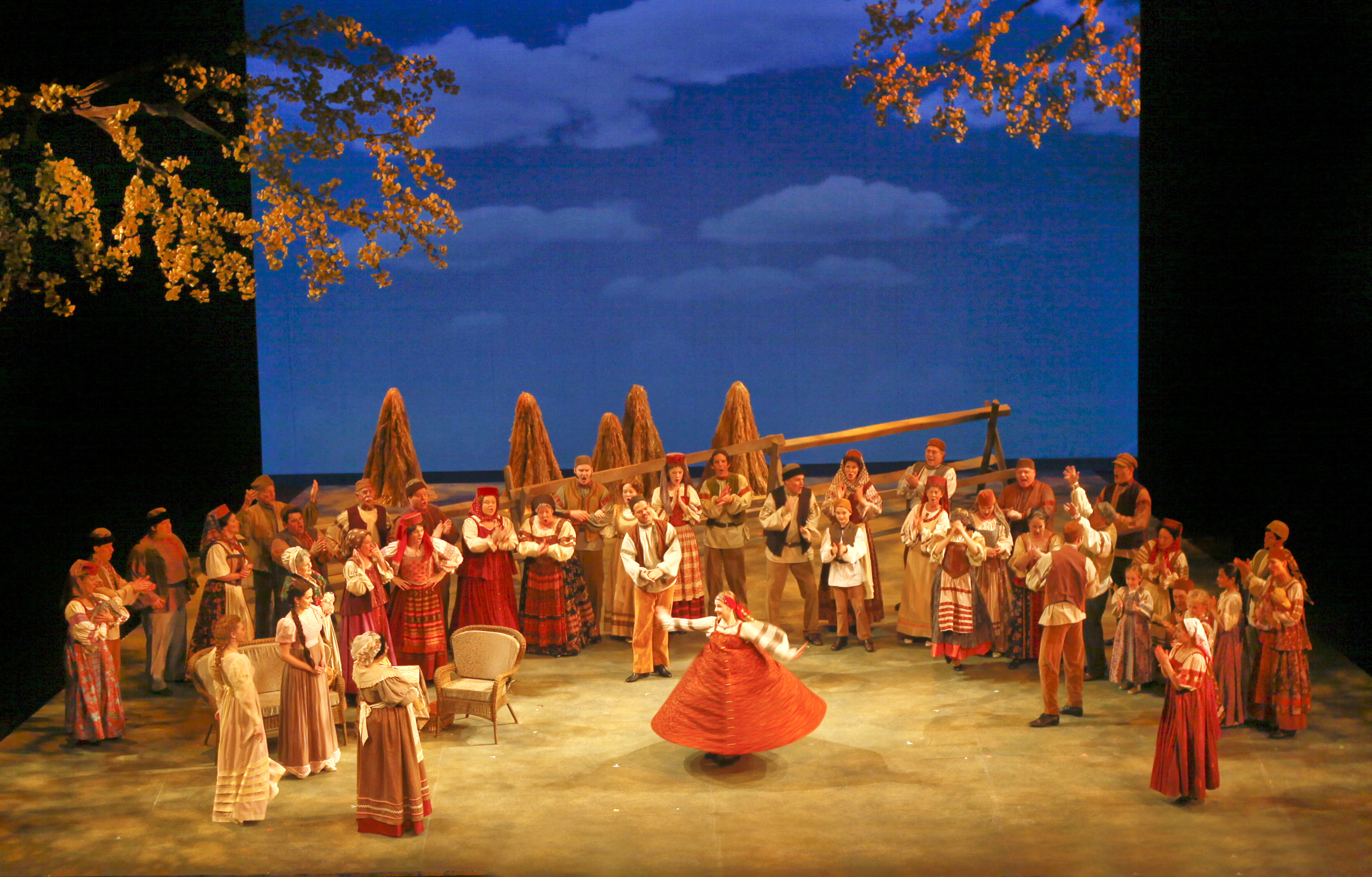
Standout performances for me were Svetlana Aksenova, as Tatyana. Notably her delivery of the night of lovesick anguish, and her conflicted heart in the final meeting with Onegin. Another favourite was Goderdzi Janelidze’s portrayal of Prince Gremin (Tatyana’s new husband). The biggest applause of the night going to his aria describing the life-changing effect Tatyana has had on him. For me, this is one of the most critical moments in the performance as it sums up for Onegin and the audience that love from a pure heart can bring meaning to an otherwise insipid existence. It was satisfying that Janelidze’s rousing delivery did this sentiment justice.
The gaiety of the peasant dance was particularly enjoyable not only for its technical panache but also for the moral it highlights. The joy the common folk get from the simple pleasures of dancing and singing serves as a stark contrast to the relentless angst suffered by the privileged Onegin despite his wealth, high education and cultural standing.
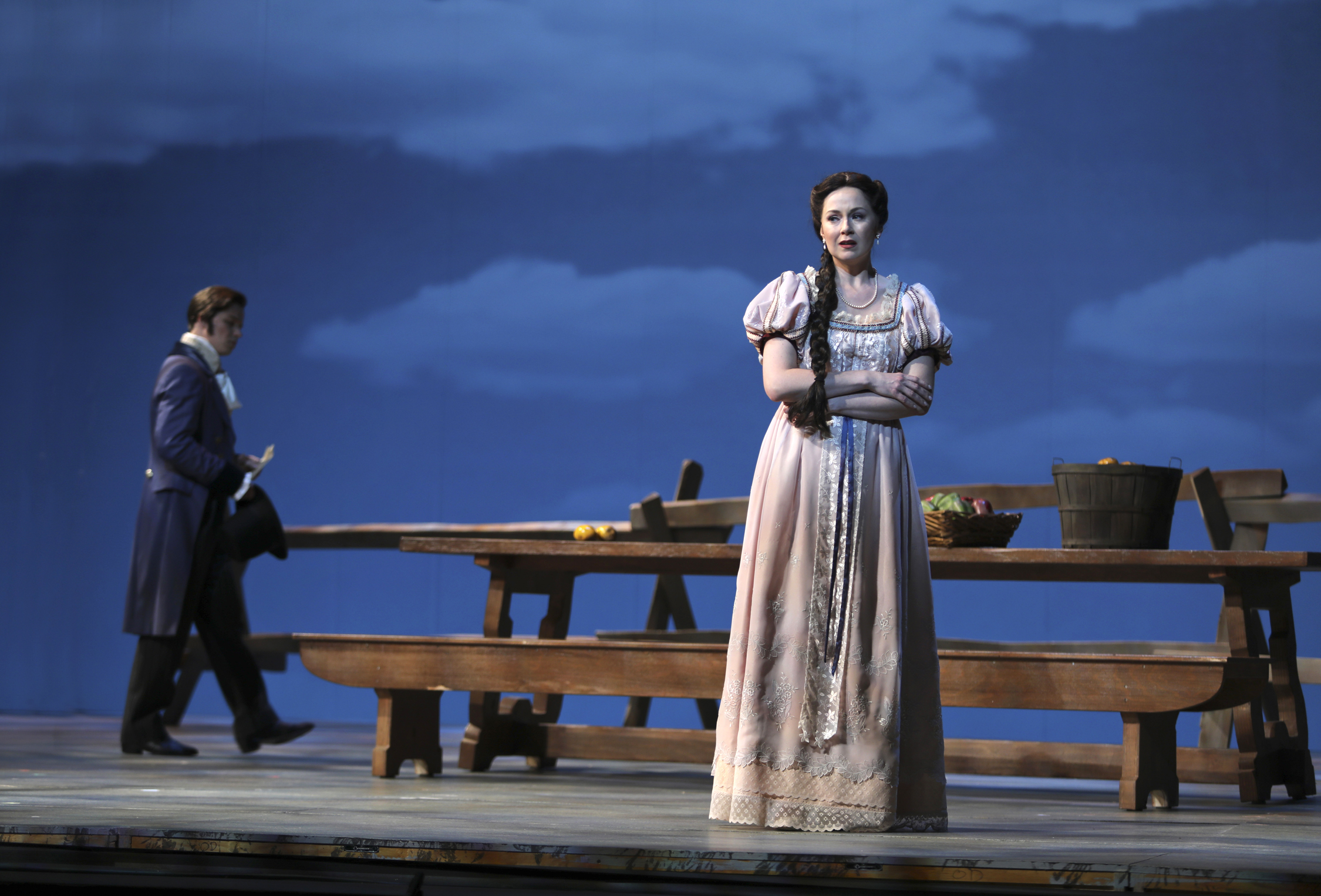
I was less moved by the performance of Konstantin Shushakov as chief protagonist, Onegin. Although technically he was excellent (to my novice ears at least), I couldn’t quite believe him as the self-absorbed and morose Onegin. Shushakov seemed to exude an innate warm placidity, a desirable attribute certainly, but at odds with my perception of the troubled Onegin.
The obscurity of Onegin’s character is not solely due to the casting of Shushakov. From the composition of the opera, it would be hard to get an idea of the essence of the man. This is a pity as it’s so central to understanding the driving themes of the story. In truth, the fault is probably with the original opera. There was no need to labour over what type of a man Onegin was to an original audience, as they would likely have a familiarity with Pushkin’s story or at least with that type of privileged yet doom protagonist that was common in Romantic literature of age.
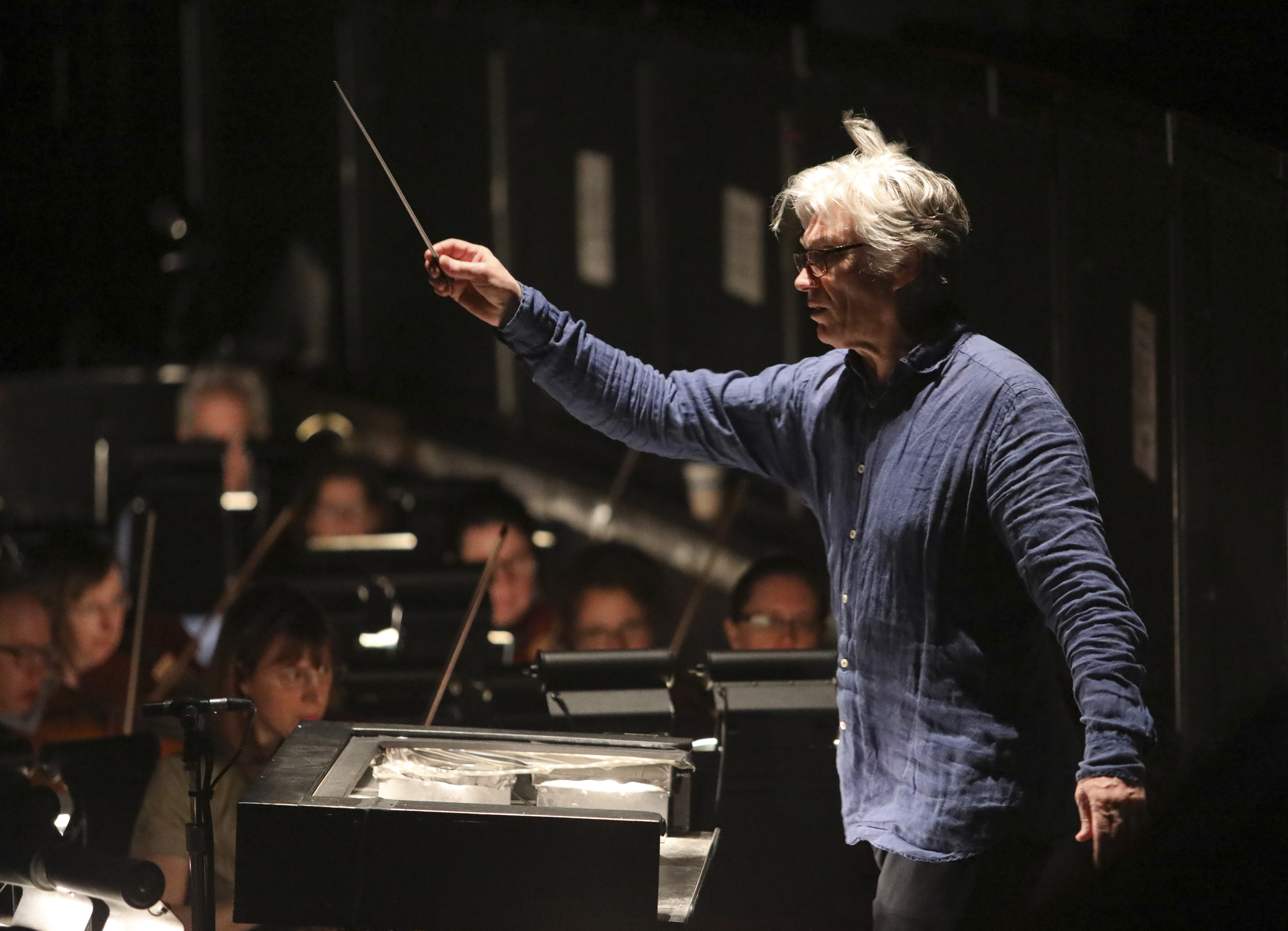
Modern audiences might need a bit more context to Onegin’s inner struggles, however. It would have been perhaps useful to show a snapshot of Onegin’s socialite/pampered past (all grotesque/hedonistic laughing faces surrounding a suave yet distracted Onegin) on the big drop down screen projection marking the start of the first scene. In any case, if you plan to see this performance I do recommend you familiarise yourself with the story beforehand. (In fact, this is why I include such a detailed preface to the story here).
Get your tickets here!
-MG
